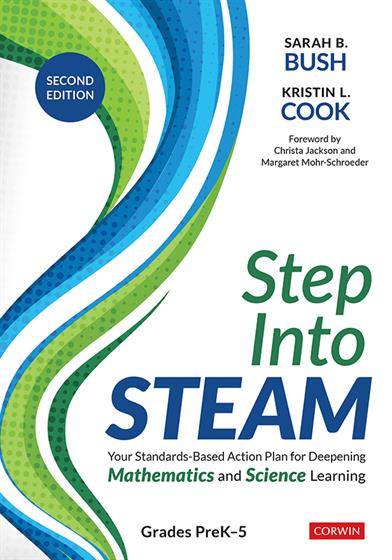Hands-on, Practical Guidance for Educators
From math,
literacy, equity, multilingual learners, and SEL, to assessment, school counseling,
and education leadership, our books are research-based and authored by experts
on topics most relevant to what educators are facing today.

Step Into STEAM, Grades PreK-5
Foreword by Christa Jackson and Margaret Mohr-Schroeder
Going far beyond a collection of STEAM activities, this book shows educators, as well as school and district leaders, how to build a STEAM ecosystem that can measurably improve every learner’s mathematics and science achievement, as well as engagement, belonging, and interest.
- Grade Level: PreK-5
- ISBN: 9781071946275
- Published By: Corwin
- Year: 2024
- Page Count: 240
- Publication date: November 07, 2024
Review Copies
Review copies may be requested by individuals planning to purchase 10 or more copies for a team or considering a book for adoption in a higher ed course. Request review copy
Other Titles in: STEM (Science, Technology, Engineering, Mathematics) | Elementary Maths | Elementary Science



